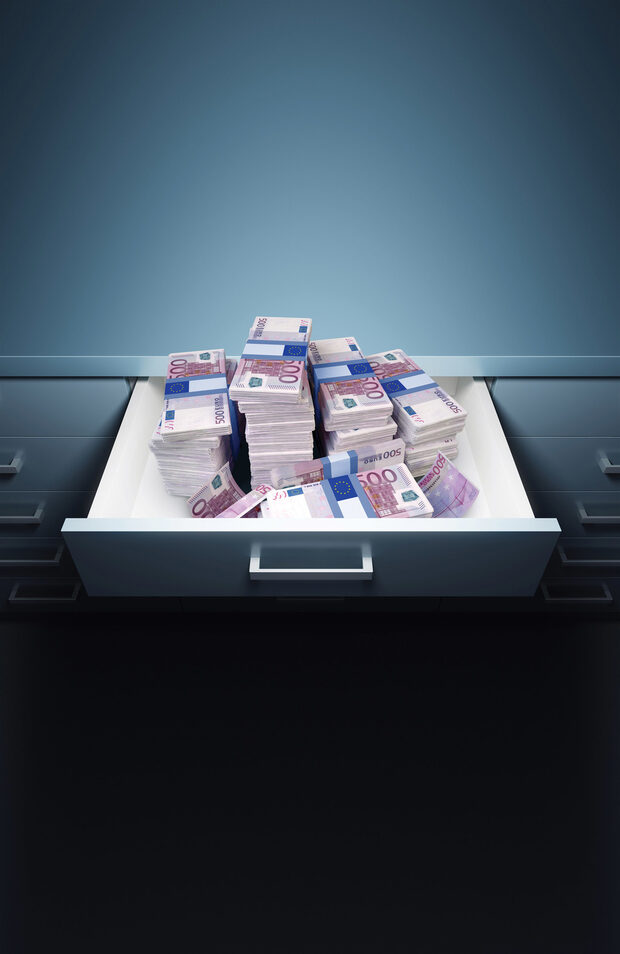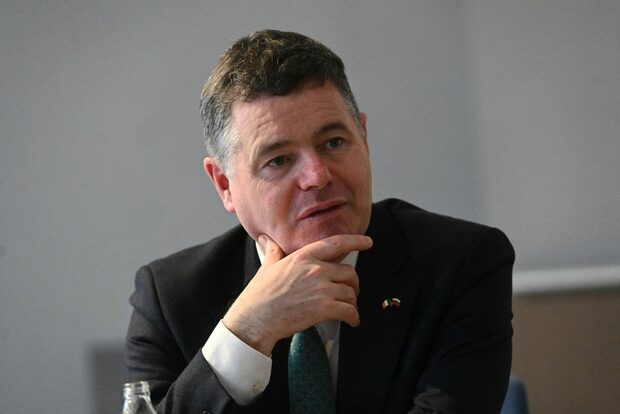Bulgaria is receiving a gift from Brussels just in the nick of time. For the first time in 3 years, the euro casket is being opened again. After the previous programs expired and everything else was rerouted to support the pandemic recovery, the economy was largely left without the fuel of the European funds (although it did not suffer from it at all).
Now, however, they are flowing again - the first procedures under the Recovery and Resilience Plan have already started, and last month the European Commission also approved the Partnership Agreement, which opens the way for new European programs for the period 2021 - 2027.
Bulgaria expects to receive between 35 and 45 billion levs (18-23 billion euro) over the next few years (if you don't count the loans we haven't requested yet - another 4 billion). This is an awful lot of money: it equals almost the entire amount that the country has received so far in the 15 years since the beginning of its membership in the EU. The timing of the cash flow is also fortuitous - on the cusp of a recession combined with inflation that will dampen the investment cycle for years to come. In other words, good income at just the right time.
The only question is what the people in charge will do with it. Because the two greatest dangers - squandering it on nonsense or it ending up in someone's locker - we've already witnessed.
The departure of the new billions
EC finally gave its approval for the Partnership Agreement with Bulgaria. Translated, this means that the main document in which Sofia says how it will spend 11.5 billion euros in the next 7 years has been approved (see graphic). This is the money for all new operational programs - from transport to education, which, however, will have to be approved separately.
"3 out of 10 programs have already been submitted. Another 6 will either be submitted soon or are in the final stage," a commission source explained to "Capital". According to her, the programs are "at a very advanced stage", which means that, in the best case scenario, they will be approved within a month or two. "All must be greenlighted before the end of 2022," the commission source says. The first one has already been approved - the one for the development of Human Resources.
This money covers everything from urban development and highways to IT vouchers and business equipment. The fact that Bulgaria is without a regular government yet again worries Brussels, but not as much as last year - the main documents have now been agreed. "It is extremely important that there is a functioning government in the coming weeks and months so that we can finish. But most of the work is done," said the source.
The other pot of money - the Recovery Plan, has already opened its first procedures: BDZ trains and technological modernization for companies. Since 4 billion levs are set aside in the budget anyway for spending on European programs, it is quite possible that many more lines of financing will be opened by the end of the year.
The reforms
However, a functioning government and parliament are vital for the advancement of the reforms, on which the allocation of money under the Recovery and Sustainability Plan depends - a total of over 13 billion levs. Due to the still unfulfilled 4 conditions with a deadline of June 30, for example, Bulgaria cannot receive the first payment of 2.67 billion levs.The country must adopt or amend 22 laws this year in order to receive the first billions from the Recovery Plan. Seven of them are in the justice sector, where it is obvious that without a parliamentary majority changes are impossible.
The energy commitments made to Brussels also seem impossible compared to today's market realities. The National Electricity Company must cease to be a public electricity supplier. This means not buying energy at regulated prices from the Kozloduy NPP, thermal power plants, small renewable energy sources and hydropower plants, which it then sells to the electricity supply companies.
If this model is adopted - the deadline stipulated for this to happen is September 30, 2022 - the state will have a much harder time guaranteeing low electricity prices for households. Against the backdrop of inflation, war, and the energy price shock (and possible gas shortages), it's hard to think that the caretaker government would go for this.
The dramas so far
The lack of supervision and responsibility, as well as rampant corruption practices in the last years of Borissov, have reached such proportions that in a report of the Ministry of Finance, which the already ex-Deputy Minister Andrey Tsekov cited a few months ago before a parliamentary committee, more than 50% of the orders of the major contractors in the country are with one candidate either from the beginning or after the removal of the others. In some municipalities, this percentage reached 90%, Tsekov said. In other words, in the vast majority of cases, public authorities indicated directly to whom they want to give the money.
Fixing the public procurement system has been set as a horizontal condition by the EC before the new money is released. Guarantees for participation of more candidates and the quality of the competition, as well as indicators for possible tender manipulations, are requested. Most of these things are easily achievable and won't require changes to laws, which is good because it looks like there won't be a parliament in the coming months.
The bigger issue is whether there will be a government willing to fix this system. Its temptations are too great, as has become evident in recent years - not only at the central, but also at the local level. Fixing it will include restarting most inspection bodies, strengthening the functions of the Public Procurement Agency and a complete absence of a political umbrella.
Money on the brink of recession
The timing of this money is essential and ironically, the EU is so slow, that it's right on time. When Bulgaria started receiving European money 14 years ago, the world fell into the financial crisis. It is now on the brink of recession. According to most analysts, the large and developed economies will enter one in 2023, and some believe that the US could fall into a technical recession this year. This will be combined with still high levels of inflation, which are unlikely to normalize in the coming year.
Against this background, Bulgaria will have to beware of sudden movements and, in general, not bet on too large-scale investment flows. Many businesses will struggle, so having this financial channel can be a lifesaver. Iliana Tsanova, who is a former deputy prime-minister for European funds and a current high-level deputy general director in the EC, recalls that "during the global financial crisis, when public investments in some countries in Europe shrank by over 30 percent, financial support from the EU played a key role in maintaining investment in Bulgaria. Then it significantly mitigated the impact of the crisis on the economy."
How they will be used will determine a lot. For the period 2007 - 2021, a little over 47 billion levs entered the country, but the problem is where this money went. There were some roads and a Sofia metro project, yes.
A considerable part, however, sank into the ground (and into political cupboards). Bulgaria remains in last place in the EU in terms of GDP per capita and lags behind Romania, which entered together with it, which shows that something in this model is wrong.
In order not to repeat this, it is very important to constantly monitor the effect. European money continues to be distributed to an astonishing extent without any feedback from the people in whose cities it is spent. There are no public hearings or even online polls for them. This is the other quick and important change that needs to happen.
Bulgaria is receiving a gift from Brussels just in the nick of time. For the first time in 3 years, the euro casket is being opened again. After the previous programs expired and everything else was rerouted to support the pandemic recovery, the economy was largely left without the fuel of the European funds (although it did not suffer from it at all).
Now, however, they are flowing again - the first procedures under the Recovery and Resilience Plan have already started, and last month the European Commission also approved the Partnership Agreement, which opens the way for new European programs for the period 2021 - 2027.












